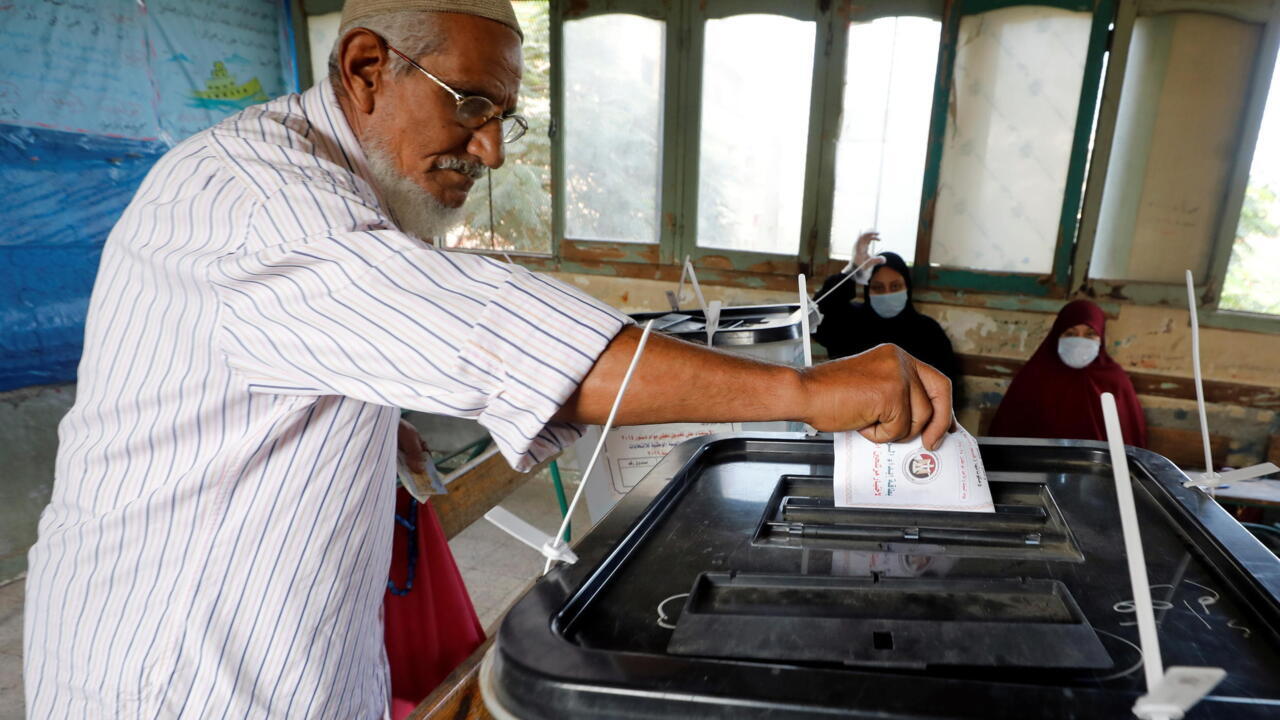It is an election played in advance which takes place Saturday, October 23 in Egypt.
Faced with an opposition condemned to play a figurative role, it is the pro-government coalition of President Abdel Fattah al-Sisi that will win at the polls.
About 63 million voters, out of a population of 101 million, are called upon to renew their parliament by electing 568 deputies out of a total of 596. The remaining 28 will be appointed by the president, whose growing grip on Egyptian politics.
For several weeks, giant posters bearing the effigy of the candidates, around 4,000 independents and eight lists have sprung up in Egyptian cities.
The candidates, many of whom are representing themselves, are campaigning by text message and with a lot of online videos.
Given the very limited number of opposition candidacies, the victory of the pro-government coalition led by the "Mostakbal Watan" ("Future of a Nation") party is beyond doubt.
The participation rate promises to be particularly low.
In August, the Egyptians voted to fill part of the 300 seats in the upper house.
This last ballot was marked by a turnout of only 14.23%.
In power until 2030
Elected in 2015, the current lower house is already overwhelmingly dominated by supporters of Abdel Fattah al-Sisi.
The "25/30 bloc" representing the opposition is very much in the minority.
Made up of influential businessmen and public figures, "Mostakbal Watan" experienced an additional consecration this week with the appointment of its leader, Abdelwahab Abdelrazek, as head of the Senate.
The reestablishment of the Senate, abolished after the fall of former Islamist president Mohamed Morsi, is part of a constitutional reform approved by referendum in 2019 and very favorable to the current president.
The latter provides for the possibility for Abdel Fattah al-Sisi to remain in power until 2030, strengthens his control over the judiciary and allows the army to further extend its influence over the economy.
Under the Sisi presidency, Egypt silenced the Islamist opposition as liberal: the Muslim Brotherhood, left-wing activists, journalists and bloggers.
If the opposition was weak under the presidency of Hosni Mubarak, ousted from power in 2011 after a reign of nearly thirty years at the start of the Arab Spring, it was then more represented in Parliament.
With AFP
The summary of the week
France 24 invites you to come back to the news that marked the week
I subscribe
Take international news everywhere with you!
Download the France 24 application
google-play-badge_FR

